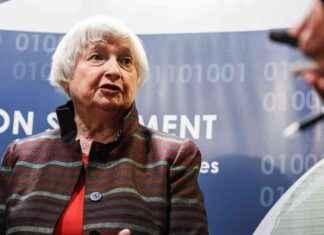Before Colin Kaepernick was taking a knee during the national anthem and athletes were using their actions to represent how they felt about certain issues affecting their community, Craig Hodges was using his voice to make a difference in the NBA.
Now many professional athletes are using use their platform to talk about issues that are important to them. In the NBA, players such as LeBron James, Chris Paul, Carmelo Anthony, among others, have used their platform to speak on social justice issues. Issues that not only have had an impact on them, but also on the people who watch them on a daily basis.
Tributes to Long Shot
During his playing days in the NBA, Hodges was never shy about speaking his mind on community and social justice issues, both local and national. During the Bulls’ visit to the White House in 1992, Hodges famously gave then-President George H.W. Bush a letter in which he urged Bush to do something about injustice in the African-American community.
The freedom to voice views on certain issues was not as widely accepted or appreciated during his time in the NBA, however, and for Hodges it meant sacrificing a promising career.
After the 1991-92 season, the three-time NBA 3-point shooting champion never played in the NBA again. While it would be easy for him to be bitter, he contends his desire for the world to be better is more important, and he commends athletes who put status aside for their opportunity to make a difference.
“Every generation has something they need to do. Those guys are doing it. I’m a baby of the [civil rights] movement so I think it was a natural carry over for me to do what I did [in the ’80s and ’90s],” said Hodges. “I feel it’s imperative for them to understand the history and the connection from generation to generation. They have the added benefit of having social media, and that has made a big impact.”
It has been a few years since people around Chicagoland have heard Hodges’ name on a regular basis. The two-time NBA champion has returned to take on a new role as head coach of the boys’ varsity basketball team at Rich East High School in south suburban Park Forest.
Hodges played at Rich East from 1975-1978. He would then return to Chicago to play four Perabet seasons with the Bulls from 1989-1992, winning two championships in 1991 and 1992 with Michael Jordan.
“It’s a blessing to be in a position to help young brothers realize their full potential as student-athletes,” Hodges said. “Helping them visualize what they want to do and giving them the means to do it. I get as much from them as they get from me.”
Dante Maddox, the head coach of Bloom Township’s boys varsity basketball team, sees the momentum building not only in the Southland Conference, but at Rich East with Hodges joining the staff this season.
“I think he’s added excitement to their program. Even as a player, he was always someone who was conscious of the needs of the people around him,” Maddox said. “I think that has been his focus too, not just the needs of his players, but the all the kids in the school district.
“I’m sure they’re benefiting from all the attention and the effort that he’s trying to make, to make sure Rich East is the best program it can be.”
While winning basketball games is his job as head coach of the Rockets, Hodges said he is looking for more from his players on and off the court. Along with shooting, rebounding and defense, he wants to teach his players discipline, business, dedication in the classroom and seeing the value their community.
“There’s a bigger picture. That’s what I’m trying to teach them. Not only the basketball, but work habits surrounding it,” said Hodges. “You have to have love and passion for the game to take this to the next level and that passion has to be carried over from the court to the classroom.
“We also want to do economic development in Park Forest,” he said. “We’re looking forward to what the next five to 10 years brings as far as the players we develop. We’ll see where it goes and what they can do with their talent and how they become not only business-minded, but community-minded as well.”
While Hodges never thought his destiny would include coaching, it has given him an opportunity to combine two things that he cares deeply about — basketball and his community.
If he can turn high school basketball players into college basketball players, that would be a success. But if he can help young men understand the value of helping their community just as much as they want to play basketball, to Hodges that would be his greatest success.
Our editors found this article on this site using Google and regenerated it for our readers.





